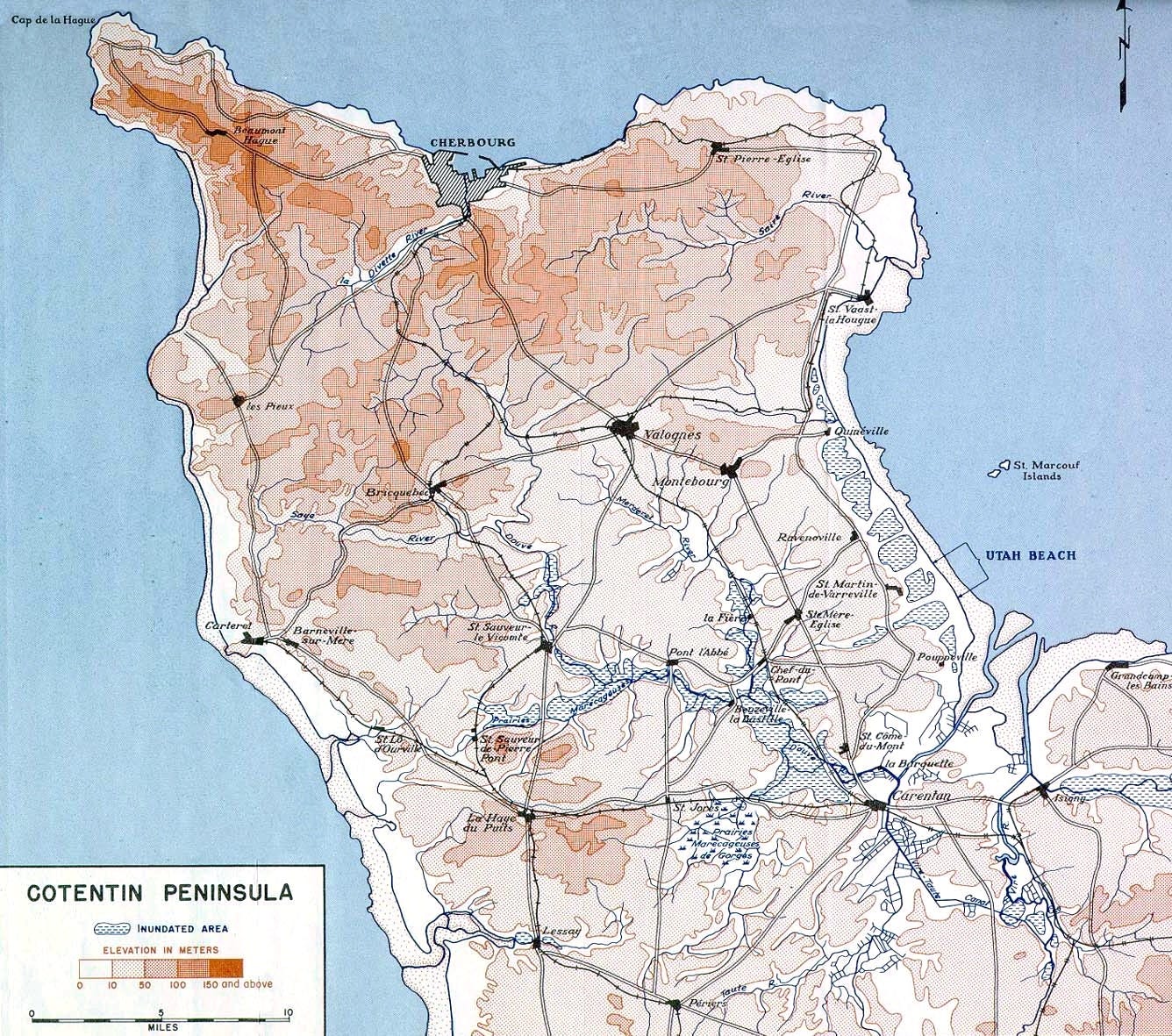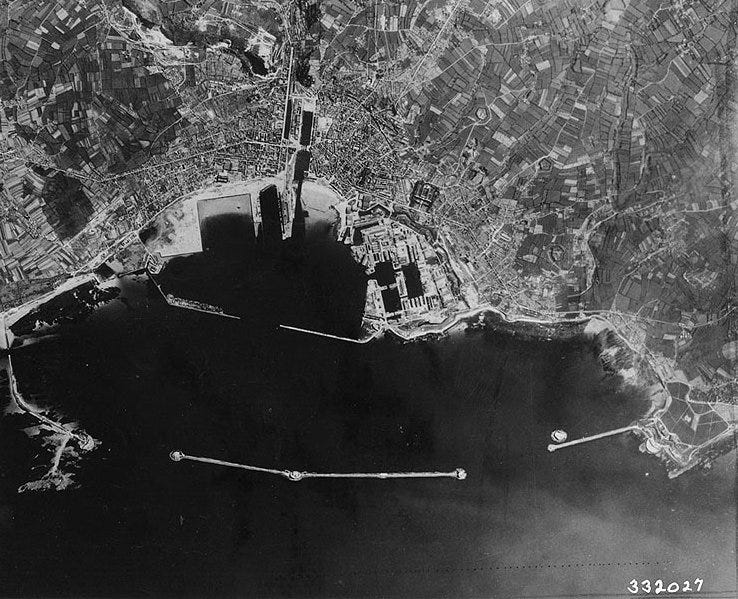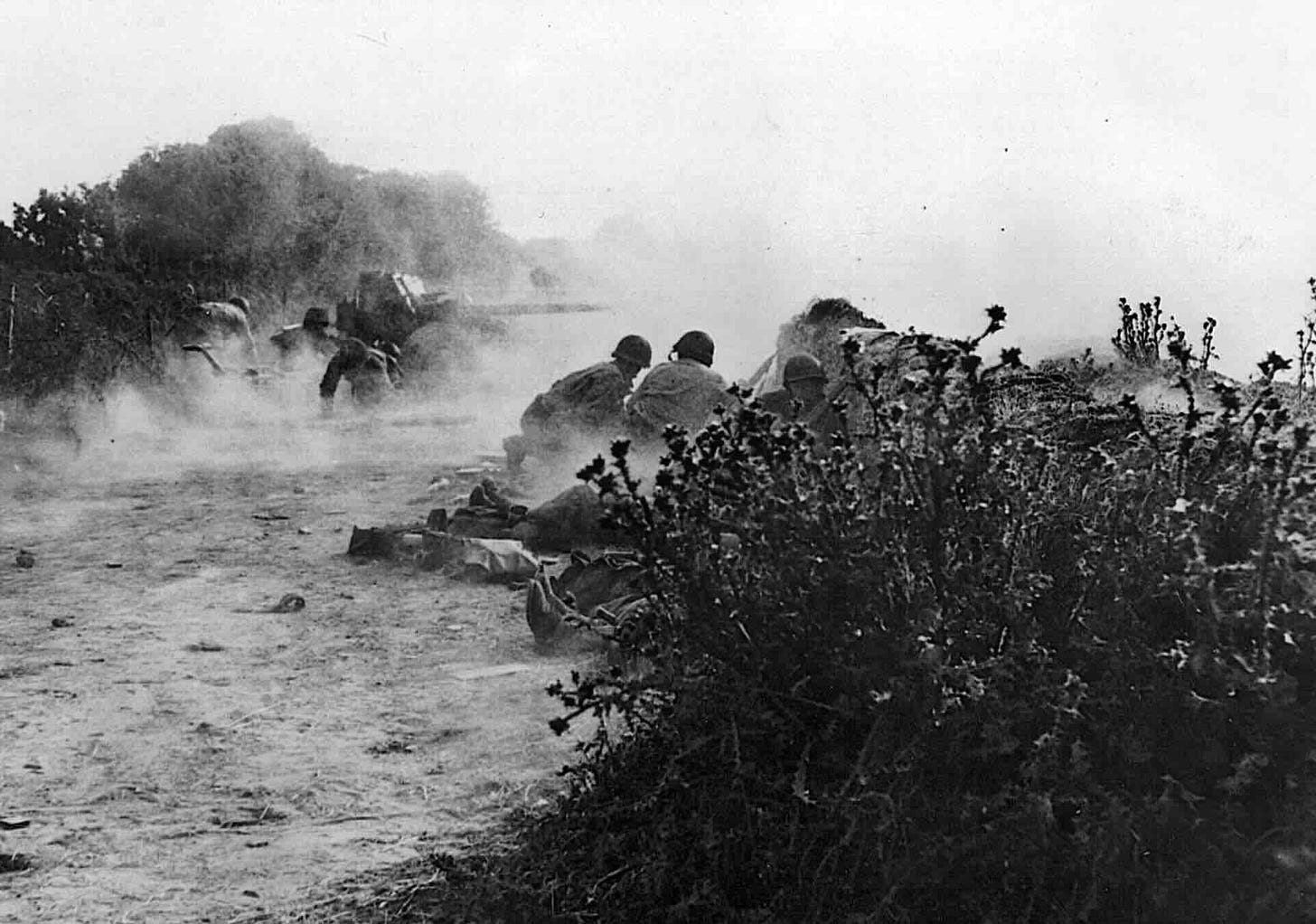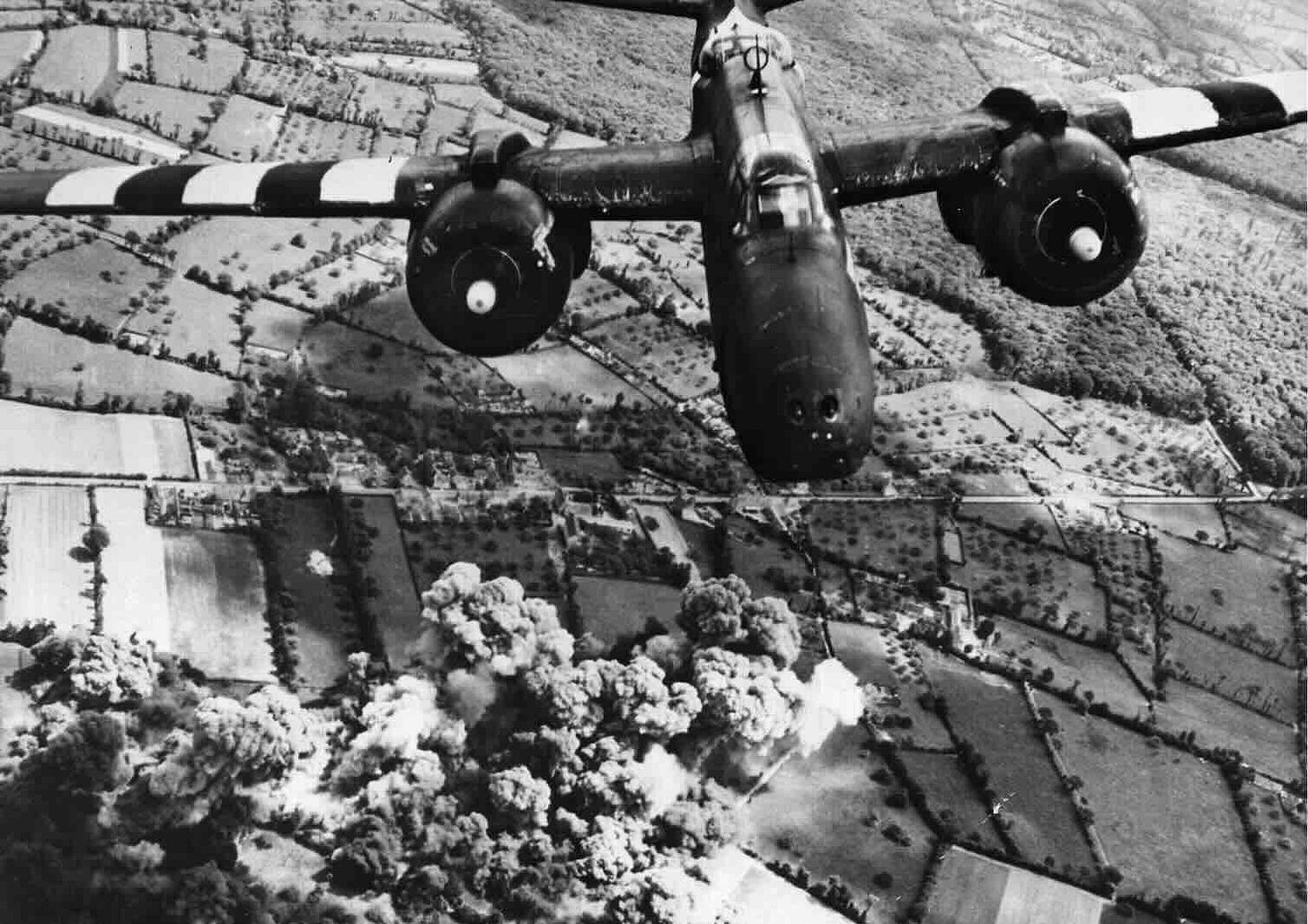The advance into Cherbourg
24th June 1944: American troops take the first city in Normandy - but it will take a few more days to blast the defenders out of their bunkers near the port
In January 1944 Montgomery had insisted that the invasion front be broadened to include Omaha and Utah beaches. Part of his reasoning was the need for the Allies to seize the Cotentin peninsula and the port of Cherbourg early in the campaign. He did not believe the Mulberry harbours would be sufficient to supply the Allies with the munition build-up needed. Now with the engineers still struggling to bring the Mulberries back into operation after the storm, Cherbourg seemed more important than ever.
Some 400 Germans were holding on here, but they fled in panic as the Americans burst through the trees.

Hitler had declared Cherbourg to be a fortress - ‘Festung Cherbourg’ - expecting the garrison to fight to the death. But they were a disparate group of forces, some very much second-rate older conscripts - mixed with dedicated Nazis who were prepared to die for Hitler. All were poorly supplied and now cut off from the rest of German forces in Normandy.
Alan Moorehead1 was present as the US troops entered the town on the 24th:
It was an uplifting moment. We could see the buildings fringing the water's edge, the warehouses along the docks, and beyond this, in the calm sea, the outer concrete breakwaters of the harbour. All the green land between us and the sea – about a mile – was swarming with Germans. They brought us to a sudden halt on the road by firing almost point-blank out of a stone farmhouse. On the right they kept up a running fight through the undergrowth with machine-guns.
And on the left, just as I was watching with my glasses, a thicket of trees suddenly opened up with great trailing balls of fire coming towards us. These were the German rockets. As their phosphorus burned away the air was filled with a breath-taking noise, a sort of whirling and tearing, and a second later the farmyard below us disappeared in walls of dust and smoke. About the same time half an acre of ground half a mile away appeared to rear itself slowly and lazily in the air until it formed an immense mushroom of smoke and the noise of the explosion came rushing across the field at us.
We were pinned down on a sunken road under almost continuous rifle and machine-gun fire. It kept hitting with vicious little whacks against the piled-up earth beneath the hedge. So long as we did not bob up above the level of embankment we were perfectly safe there in the strong June sunlight. The embankment was four feet thick and those shots that missed simply whizzed by harmlessly overhead.






